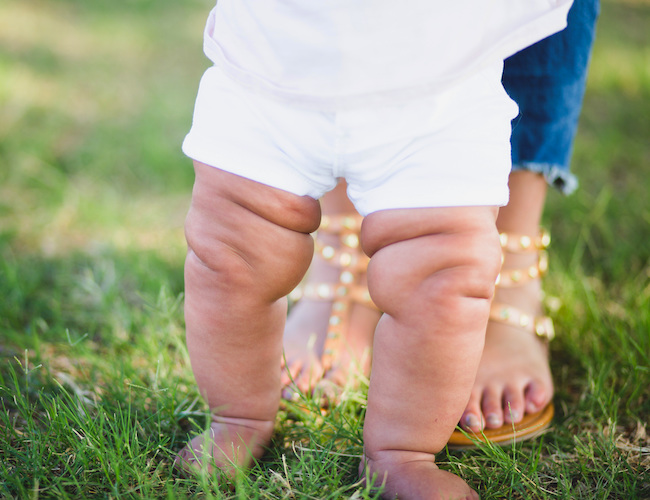Do you need to worry about your toddler’s weight?
If you are unsure about whether your child is a healthy weight or not, it helps to know what the parameters are, that sticking to a varied diet is key, and to seek medical assistance when needed.
What should a healthy 21-month-old weigh?
The Department of Health’s “Road to Health” booklet, which is issued at birth, gives the median weight for a 21-month-old as 11.5kg. A child whose weight-for-age appears below the -2 line (i.e. 9.25kg or less) is considered underweight, while if they weigh in under the -3 line (i.e. 8.25kg or less) they are considered severely underweight and illnesses such as Marasmus and Kwashiorkor could be observed.
Looking at malnutrition in toddlers
In its section on malnutrition, the UNICEF paper “Young Lives: statistical data on the status of children aged 0-4 in South Africa”, advises that only 3.6 percent of children in the age group 0 to 4 years have been found to be severely malnourished; while 10.3 percent of children are underweight.
Although this is a relatively small percentage of the population, it is worth noting the importance of good nutrition for those so young. Without good nutrition, a toddler may not be able to fight off infection, for instance.
Should you worry about your toddler being overweight?
On the other end of the spectrum, should you be worried if your toddler seems a little heftier than what would usually be described as cute and chubby? Dietitian Kristi King advises that your child is overweight if their BMI measures in the 85th to 94th percentile; and can be considered obese in the 95th percentile or above.
Rather than stressing about how they look, instead assess how easily they are able to move. A “prominent tummy” is OK in a two-year-old; however, if “walking, rolling over, or pulling themselves up” is an issue, it’s time to seek expert assistance.
What should a healthy toddler eat in a day?
The Department of Health feeding guidelines include:
• Continuing with breastfeeding as often as the child wants it until the age of two and beyond;
• Offer a variety of foods in the form of five, small daily meals;
• Fruit and vegetables must be given to your child every day;
• Offer clean, safe water regularly (juice must be diluted);
• Make sure your child takes in protein each day, in the form of chicken, biltong, fish, eggs, beans, soya or peanut butter.
“The World Health Organisation (WHO) charts for weight, height and BMI are helpful tools when assessing a child's growth,” advises paediatrician Dr Sumari Marais.
“But, they must be used in conjunction with a thorough medical history and a clinical examination for signs of nutritional deficiencies or disease. Ensure that your child has regular, balanced meals that include all the major food groups and keep healthy snacks in the house,” she says.
How sugar impacts your toddler’s health
Dr Marais recommends that children not have too much access to sugar. “I have witnessed terrible tooth decay from sugary drinks at bedtime,” she says. Good nutrition is not just important for growth, but also for their immune systems and brain maturity.”
“Children, especially toddlers, can become very selective about what they eat, so be creative and give as much of a variety as you can when it comes to meal time. Don’t fall into the trap of giving your child the same items that you know they’ll eat daily. A growing child needs a variety of both macro and micro nutrients,” she adds.
While Dr Marais agrees that on paper this sounds easy, practically it may be a bit more challenging to achieve. “In essence, though, if your child is growing (weight and height) on their own curve, then you, as a parent, are on the right track.”
IMAGE CREDIT: shutterstock.com



